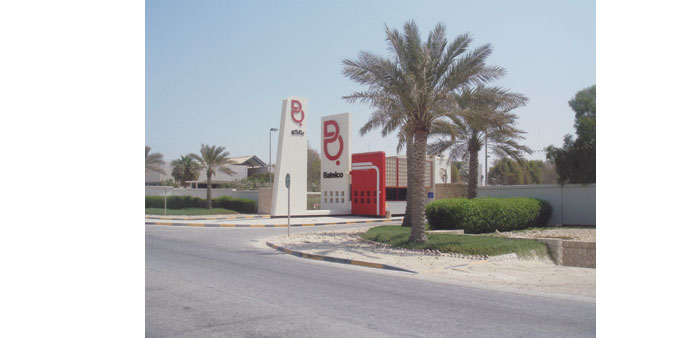Bahrain Telecommunications Co (Batelco) posted a 22.4% drop in second-quarter profit yesterday, according to Reuters calculations, hurt by continued intense competition in core markets and one-off adjustments.
The former monopoly made a net profit of 10.4mn dinars ($27.6mn) in the three months to June 30, down from 13.4mn dinars in the year-earlier period.
Batelco didn’t provide a quarterly breakdown so Reuters based its calculations on its first-half financial statement.
The firm also has not provided details of the one-time cost it incurred beyond referencing it in the first-half statement, while heavy competition has been impacting its earnings for a number of years — this was the 17th quarter in the last 20 in which it has reported declining profit.
In Bahrain, its core market, Batelco competes with units of Kuwait’s Zain and Saudi Telecom Co as well as about 10 internet providers.
Seeking to offset declining domestic profit and revenue, in April 2013 Batelco completed the $570mn purchase of Cable & Wireless Communications’ Monaco and Islands Division, although some of this deal subsequently fell foul of regulators.
Batelco also owns Jordanian telecoms operator Umniah, 27% of Yemeni mobile operator Sabafon, minority stakes in internet providers in Kuwait and Saudi Arabia and is also active in Egypt.
In total, the firm earned 57% of its revenues outside of Bahrain in the first half of 2014, a figure which helped the firm offset “the impact of ongoing and aggressive competition at home.” according to Shaikh Hamad bin Abdulla al-Khalifah, chairman of Batelco.
Batelco’s revenue in the first six months of 2014 was 194.6mn dinars, up 14% year-on-year, the statement said, while its subscriber base stood at 9mn customers on June 30, up 4% on the same point of 2013.
The operator said its board was proposing to pay a cash dividend of 0.01 dinar per share for the period. This is in line with the amount paid in the corresponding period last year, according to Thomson Reuters data.
In April, Batelco hired Alan Whelan as chief executive, nearly 11 months after former CEO Sheikh Mohamed bin Isa al-Khalifah quit.
Arabtec
Arabtec, the construction company at the centre of Dubai’s stock market turmoil, reported an 11% rise in second-quarter profit yesterday, missing analysts’ estimates.
Net profit climbed to 103mn dirhams ($28.1mn) in the three months to June 30 from 92mn dirhams a year earlier, the company said in a statement. Analysts polled by Reuters had on average forecast 111mn dirhams.
Revenues jumped 51% to 2.41bn dirhams on the back of business growth in the United Arab Emirates and other Gulf markets, said Arabtec, Dubai’s biggest listed builder.
Profit growth slowed from the first quarter; in the first half of this year, net profit rose 55% to 240mn dirhams, while revenues rose 45% to 4.56bn dirhams.
Arabtec’s share price more than tripled earlier this year, then plunged by more than two-thirds as tensions emerged between major shareholder Aabar Investments and chief executive Hasan Ismaik, leading to Ismaik’s resignation in June.
The stock’s slide triggered margin calls that sent shockwaves through the entire Dubai market, which lost $30bn of value from peak to trough, though it has now recovered about half of those losses.
Since Ismaik’s departure Arabtec has launched a restructuring plan, putting some of his expansion plans under review and laying off a “limited” number of staff. It has not described the restructuring in detail, and Sunday’s statement did not give further information about it.
“All decisions taken by the Board and executed by the management aim at achieving the shareholders’ and investors’ interests, elevating the company’s position, increasing the revenues and achieving potential growth in future,” the statement said.
Bank Audi
Lebanese Bank Audi said yesterday its first half net profit was $190mn, slightly up from $188mn in the same period last year.
The bank said in statement its customer deposits grew by $2.9bn to $34bn over the first six months of 2014.
The bank, which operates in 13 countries, said the growth was mainly driven by its Lebanon, Egypt and Turkey operations.
Lebanese banks have been hit by a slowdown in the economy and unrest sweeping the region, in particular the civil war in neighbouring Syria.

